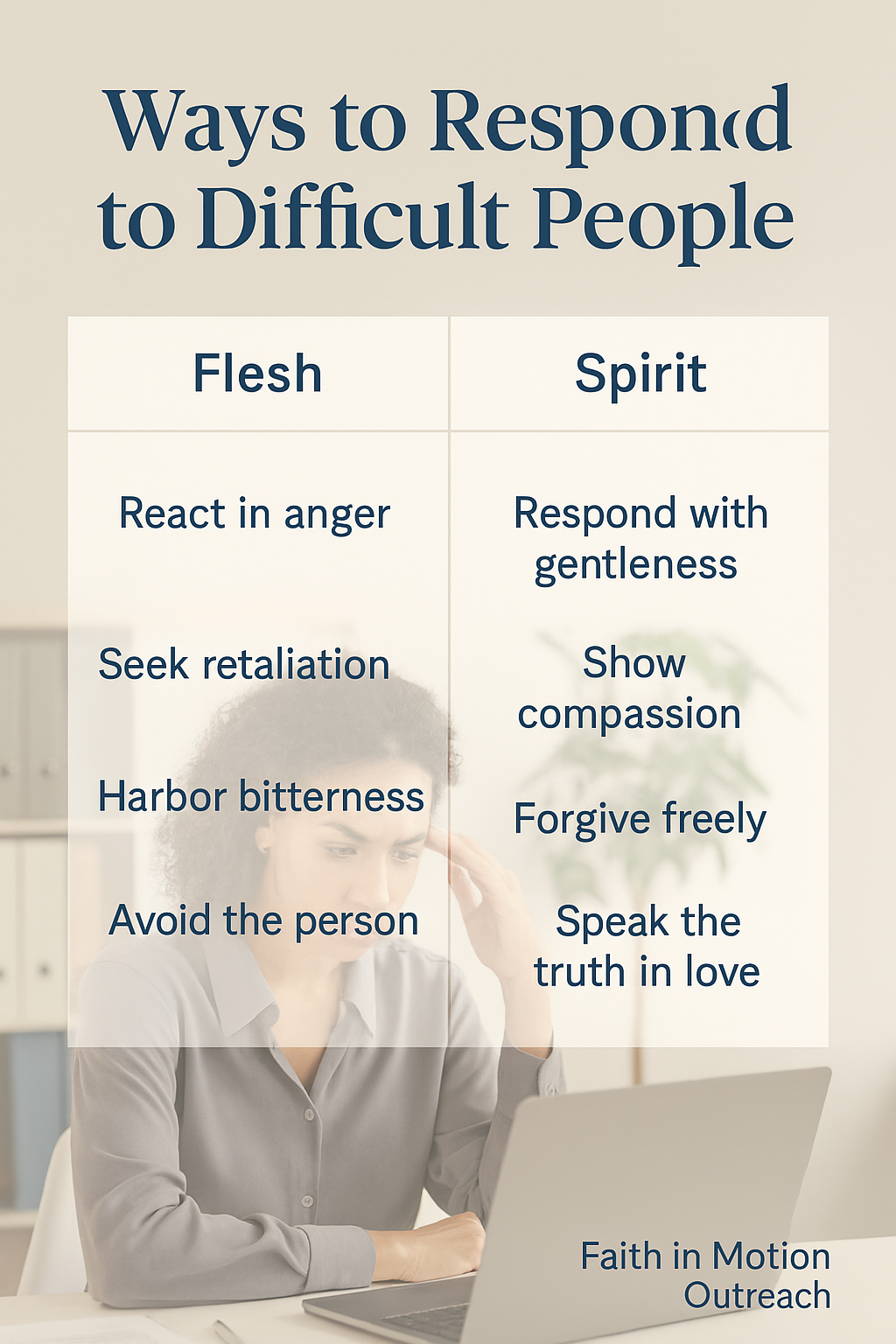Grace in the Workplace: Loving Difficult People God’s Way
Every workplace has them—people who test our patience, drain our energy, and make Monday mornings feel heavier than they should. They may criticize, gossip, micromanage, or stir up conflict just for the sake of it. And while the world often tells us to fight fire with fire, as Christians, we’re called to something higher.
Jesus said in Matthew 5:46, “If you love those who love you, what reward will you get? Are not even the tax collectors doing that?” In other words, anyone can be kind to the easy people. But the mark of a Spirit-filled life is how we respond when it’s hardest.
1. Shift Your Perspective
Difficult people are not interruptions—they are opportunities.
God often uses them like sandpaper, refining the rough edges of our character. Joseph faced betrayal by his brothers, false accusations, and unfair imprisonment—yet he later declared, “You intended to harm me, but God intended it for good” (Genesis 50:20).
Instead of asking “Why me?” start asking “Lord, what are You shaping in me through this?”
2. Guard Your Heart, Not Just Your Mouth
It’s easy to fake politeness while resentment simmers inside. Proverbs 4:23 says: “Above all else, guard your heart, for everything you do flows from it.”
Guarding your heart means refusing to let bitterness take root. It means checking your motives: Are you seeking to prove them wrong, or to show Christ’s love?
Practical Step: Keep a short prayer ready: “Lord, help me see them the way You see them.” This simple shift recalibrates your reactions.
3. Choose Spirit over Flesh
Paul describes the tension in Galatians 5: the flesh produces hostility, jealousy, and fits of anger, but the Spirit produces love, patience, and self-control. Every encounter with a difficult co-worker is a crossroads—will you react out of flesh or Spirit?
Example: Instead of snapping back at the boss who criticizes, respond calmly, acknowledge their concern, and choose humility. That doesn’t mean agreeing with everything, but refusing to mirror negativity.
4. Set Boundaries with Wisdom
Boundaries are biblical. Even Jesus walked away from hostile crowds when the timing wasn’t right (Luke 4:30). Being Christlike doesn’t mean being a doormat. Sometimes, the most loving thing you can do is limit the influence a toxic person has on your time and emotions.
Faith in Motion Step: If someone constantly unloads negativity on you, kindly redirect the conversation or keep interactions professional and brief. Boundaries protect peace without shutting the door on love.
5. Pray and Intercede
This might be the hardest step. Praying for someone who hurts you feels unnatural—but it transforms your perspective. Jesus prayed from the cross: “Father, forgive them, for they know not what they do.”
Challenge: Write down the name of the person who frustrates you most. Pray for them daily this week. Not just “Lord, fix them,” but sincerely ask God to bless them, soften them, and open their eyes to His love.
6. Live Out Radical Kindness
Romans 12:20 says: “If your enemy is hungry, feed him; if he is thirsty, give him something to drink.” Paul ends with this charge: “Do not be overcome by evil, but overcome evil with good.”
This doesn’t mean you’ll always “win them over.” But your consistent kindness, forgiveness, and grace reflect Christ far louder than resentment ever could.
Walk It Out
Next time conflict arises, pause before responding. Whisper a prayer, ask the Holy Spirit for wisdom, and then answer with words that reflect Christ.
Love in Action
Do one unexpected act of kindness for your most difficult co-worker this week. It could be bringing them coffee, offering to help with a project, or simply giving them a genuine compliment. Small seeds of kindness often grow into bridges of peace.
